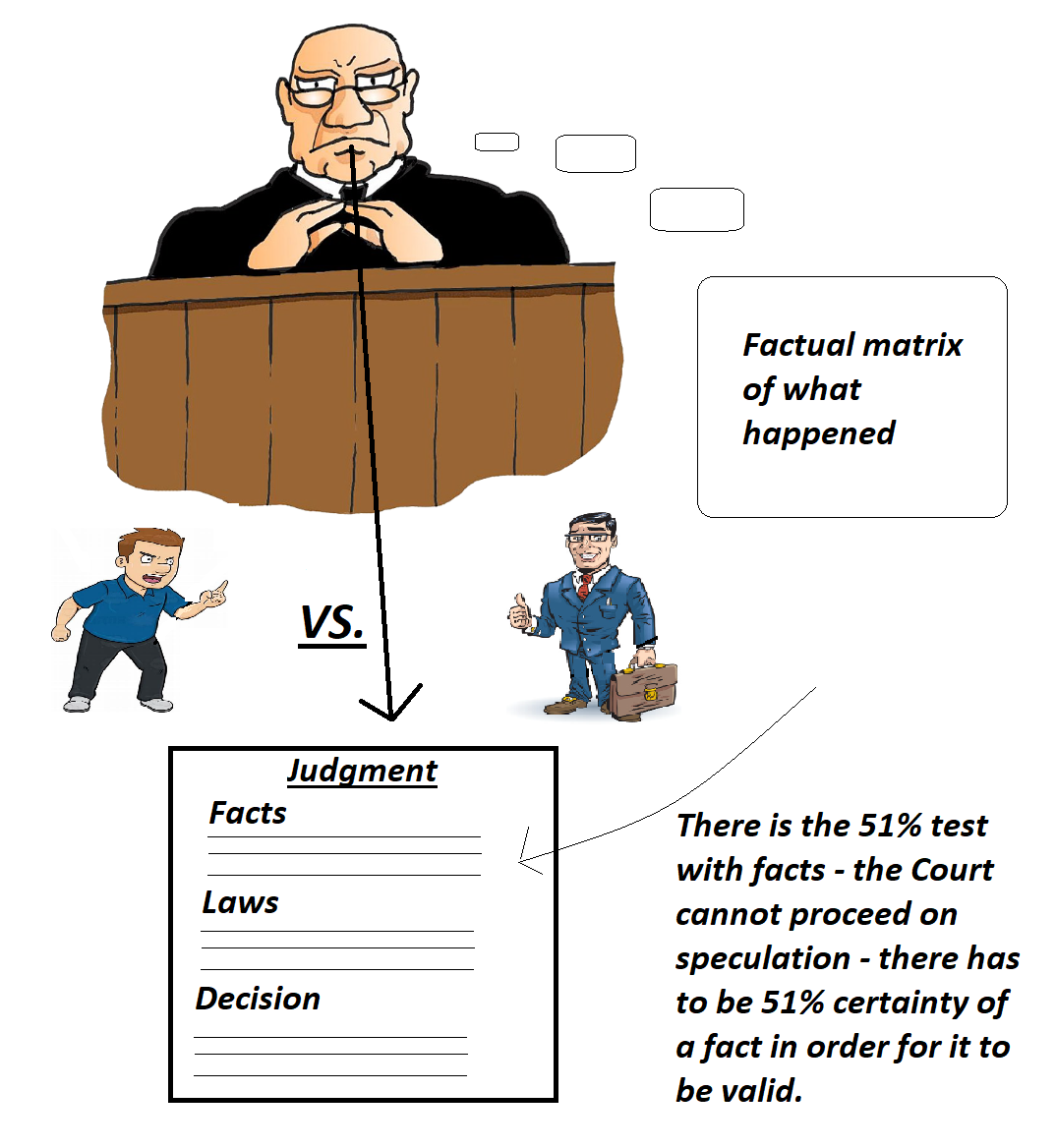Davies v Taylor, [1974] AC 207
Citation:Davies v Taylor, [1974] AC 207
Rule of thumb:What is the standard of proof for a fact being able to be held by a Court? What is meant by the balance of probabilities? The Court held that the facts are determined on the basis of ‘the 51 per cent test’ – it is just more likely than not.
Judgment:
The Court held that if the Court can say that they are 51% certain of a fact then they are able to hold it. They are not able to proceed on the basis of speculation on facts which are less than 51% certain. However, this does mean if it comes down to one person’s word against another about what happened, then this can lead to 51% certainty. This is an integral point in a Judge affirming the facts in a case.

Ratio-decidendi:
‘You can prove that a past event happened, but you cannot prove that a future event will happen and I do not think that the law is so foolish as to suppose that you can. All that you can do is to evaluate the chance. Sometimes it is virtually 100 per cent; sometimes virtually nil. But often it is somewhere in between. And if it is somewhere in between I do not see much difference between a probability of 51 per cent. and a probability of 49 per cent . . If the balance of probability were the proper test what is to happen in the two cases which I have supposed of a 60 per cent. and a 40 per cent. probability. The 40 per cent. case will get nothing but what about the 60 per cent. case. Is it to get a full award on the basis that it has been proved that the wife would have returned to her husband? That would be the logical result. I can see no ground at all for saying that the 40 per cent. case fails altogether but the 60 per cent. case gets 100 per cent. But it would be almost absurd to say that the 40 per cent. case gets nothing while the 60 per cent. case award is scaled down to that proportion of what the award would have been if the spouses had been living together. That would be applying two different rules to the two cases. So I reject the balance of probability test in this case.’, Lord Reid
Warning: This is not professional legal advice. This is not professional legal education advice. Please obtain professional guidance before embarking on any legal course of action. This is just an interpretation of a Judgment by persons of legal insight & varying levels of legal specialism, experience & expertise. Please read the Judgment yourself and form your own interpretation of it with professional assistance.

